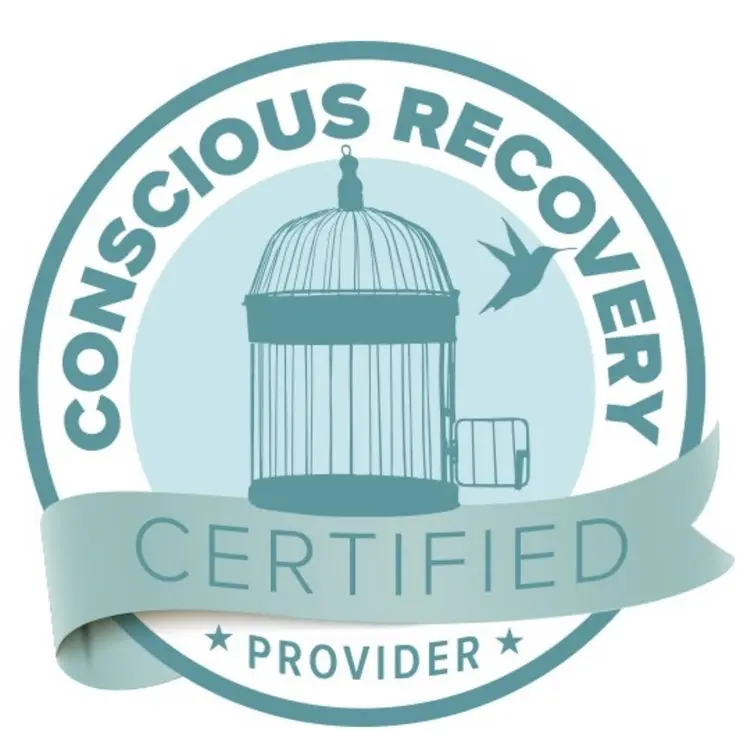According to the National Institute on Drug Abuse, 7.7 million adults suffer from co-occurring mental health and substance use disorders. Of those millions of individuals struggling with co-occurring conditions, recent data states that only 09.1% will receive effective treatment that addresses both issues.
Rising to meet this need, Monima Wellness is a dual-diagnosis outpatient treatment center designed specifically for women seeking support with both a mental health condition and a substance abuse disorder. We recognize that no two clients are the same and a dual-diagnosis looks different for everyone. That’s why our team provides inclusive and individualized care based on the needs, diagnoses, and goals of each client — regardless of where they are at in their wellness journey.
Navigating both substance abuse and a mental health condition is challenging — and is especially difficult if you are facing it alone. Our mission is to provide care, support, and guidance every step of the way. We offer a variety of treatment modalities to address each the unique needs, diagnoses, and wellness goals of each individual. We foster a safe and inclusive environment where women feel empowered and supported during recovery. Monima offers the unique opportunity for clients to build lasting bonds and a sense of community while in treatment.

At Monima Wellness, we understand the journey to healing from these combinations of challenges is complex, and each journey is unique, not universal. The dual diagnosis treatment program options at Monima provide individualized and comprehensive care that combines a variety of alternative and traditional, proven techniques, from CBT to Reiki and Acupuncture. Our team recognizes the interconnectedness of the mind, body, and spirit and our holistic dual diagnosis treatment center and recovery programs are designed to foster overall and lasting mental wellness and sobriety.
The dual diagnosis treatment recovery program at Monima considers biological, psychological, social, and environmental factors that are unique to each individual. Our approach to treatment promotes long-term wellness, sobriety, and complete healing that goes beyond just relieving symptoms. At Monima, we provide an integrated, personalized, and diverse range of services that set each patient up for a breakthrough in their wellness journey and the chance at a sustainable and life-changing recovery.
Monima offers two dual diagnosis outpatient program options for clients coping with substance abuse and mental health issues. Our Intensive Outpatient Program (IOP) and Partial Hospitalization Program (PHP) provide two distinct levels of care so each client receives the support they need.
Monima’s Intensive Outpatient Program (IOP) was built for women seeking part-time treatment for moderate to severe symptoms of a dual-diagnosis — both the mental health condition as well as substance abuse. IOP is designed specifically for women ready for a level of support above traditional weekly therapy, or as a stepping stone between a full-time recovery program — such as PHP or residential treatment — and returning to their daily routines full-time. Clients in the IOP program receive 9-15 hours of therapeutic engagement per week.
The Partial Hospitalization Program (PHP) is the highest level of care available at Monima. PHP is best suited for clients with severe mental health and substance abuse symptoms that have begun to interfere with daily life and continue to persist despite therapy or medication. Most clients take a leave of absence from work, school, or their daily routines to fully commit themselves to the program. While in PHP, clients will be engaged in group and individual therapy five to six hours per day, five days a week.
Monima has partnered with Ohana Recovery Residences to provide optional safe housing for women enrolled in Monima Wellness outpatient programs. Women who stay at Ohana experience an immersive, supportive recovery environment with a like-minded female community.
The dual diagnosis model of treatment is an integrated approach that addresses both substance use disorders and co-occurring mental health conditions simultaneously. This model recognizes the complex interaction between these disorders and seeks to provide comprehensive care that considers their interconnected nature.
The key to treatment is understanding the ways each condition impacts the other. Treatment varies based on the individual, their mental health diagnoses, the severity of symptoms, and the types of substances being abused. Treatment is often a combination of the following:
The term ‘co-occurring disorder’ is often used interchangeably with ‘dual diagnosis’, but it is not exactly the same thing. The key differentiator is that co-occurring disorder is a more general term and can be used to refer to any combination of mental health conditions. Dual diagnosis is specifically used when substance abuse is one of the two (or more) conditions.
Example of co-occurring disorder: Someone who is diagnosed with one or more mental health disorders (i.e. depression, bipolar, PTSD, anxiety). It can also refer to someone who is diagnosed with a mental health disorder in addition to an intellectual/learning disability (i.e. autism, ADHD).
Example of dual diagnosis: Someone who is diagnosed with a mental health disorder (i.e. depression, bipolar disorder) in addition to diagnosed with substance abuse disorder (i.e. alcohol addiction, drug misuse).
Find out if Monima is the right treatment center for you or your loved one. Please note: we are an insurance-friendly organization.

